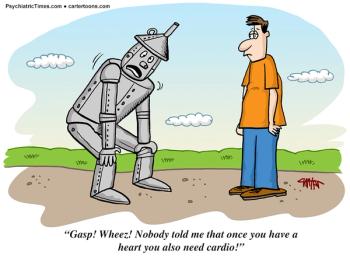
"If I only had a heart."

"If I only had a heart."

In recent years, violence has unfortunately become the tragic touchstone that too often draws the public’s attention to mental illness.

At three breaths before death a blue latex hand pulls out a trach tube, a blade skims over the zipped up hole, and droplets of blood are sucked into skin...

A psychiatrist's chess game with his patient didn't go the way he expected.

A rare glimpse into the bipolar life, where behavioral markers often come in 3’s.

Look how close we are to the ideal: free online bipolar psychotherapy that is as effective as seeing a live therapist.

The therapist "goes underwater" with the patient to find what lies in her mind.

On the risk of accepting the practice of psychiatric diagnosis from afar.

Can cardiovascular fitness help older adults ward off dementia?

The Psychiatric Transition Program at the Naval Medical Center in San Diego is a specialized first-episode psychosis program that provides coordinated specialty care to active-duty service members with serious mental illness.

Here's an overview of motivation for assaults by chronically aggressive inpatients and steps to de-escalate.

The authors review the association between depression and violence, and the role that anger and emotional dysregulation play.
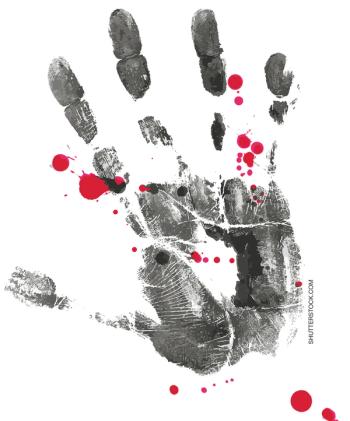
There is no predictive tool that is likely to have validity for rare outcomes such as terrorist attacks. More here.

Here's compelling reason for judicious use of restraint and seclusion, and a review of various alternative approaches.

How could this have happened? What could you do to keep yourself and your team safe from another code white?

The APA's historic Position Statement provides guidance for psychiatrists in the face of a rapidly changing landscape of social values and expectations of medical services. Details here.

These studies shed light on the relationship between exercise and depression in children and adolescents.

Here's what's known about the growing shortage of psychiatrists -- why it's happening-- and possible solutions.

The psychiatric literature is overwhelming. So these authors have culled 25 "top" articles based on their relevance to clinical practice. Here's a quick synopsis of 8 top articles.
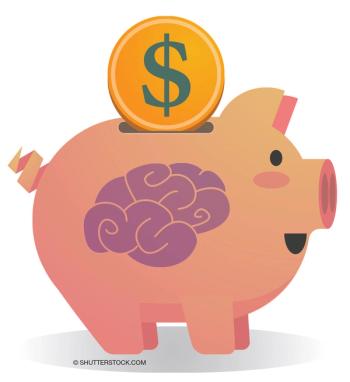
Now is the time to be vigilant and active in the advocacy efforts to fund all the terrific new opportunities the 21st Century Cures Act offers. Here are 9 aspects of the law that focus on psychiatric practice and treatment of those with serious mental illnesses.
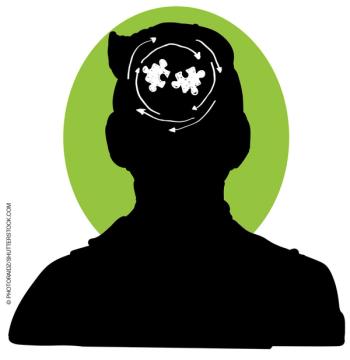
During the past 5 years, new insights into the pathophysiological processes that underlie schizophrenia have been revealed. Here's a quick update.

In high risk patients, cognitive deficits such as impaired working memory and declarative memory may be an early indicator of psychosis.
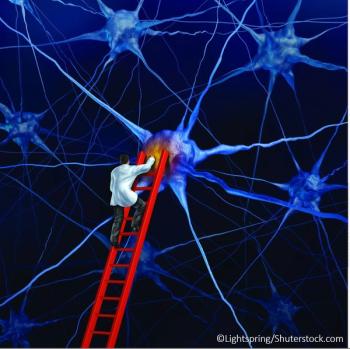
New research shows it’s not “all in your head”-it’s also in your gut.

To understand and to feel understood is a powerful antidote to relieve human psychological suffering. Therein lies the heart of the self-medication hypothesis of addiction.

An in-depth CME on DSM-5 criteria for persistent complex bereavement disorder and the clinical management of pathological reactions to the death of a loved one.
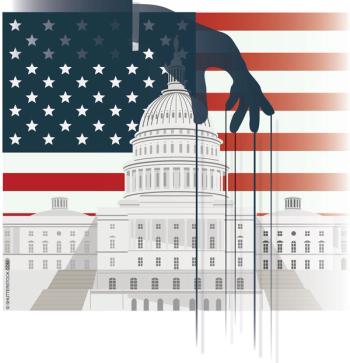
Will the new Administration disrupt mental health coverage in this country?

A personal account of a psychiatrist whose brother died by suicide.

We teach every intern how to find the place where they can lay down a silver stethoscope and listen to everything...

After a code gray, it was clear to me that no matter one’s training, only such fundamental moments can enable one to answer affirmatively when asked, "Are you experienced?"

The goal of clinically relevant detection of neuropathological hallmarks may be in sight.